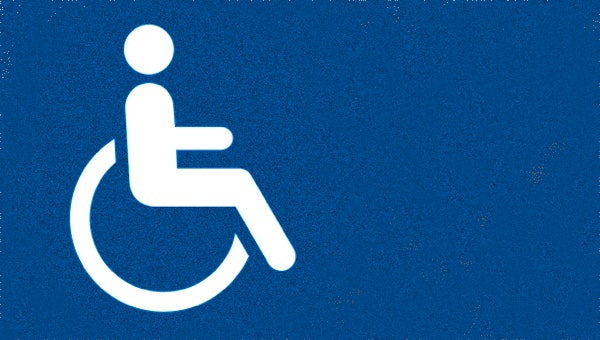They are there for a purpose
Published 12:06 am Sunday, March 25, 2012

Police and disability advocacy groups urge residents to follow state law when it comes to handicap parking spaces and zones.
The temptation for some is just too overwhelming. The open parking spot is just sitting there, open, inviting and no one will know. No one really patrols and issues tickets for that parking violation. There are too many things much more important.
That is, unless you are one of the many in Selma and Dallas County who have a temporary or permanent handicap and the accessibility of a handicap parking spot is not merely a spot of convenience, but a spot of necessity.
For Carolyn Bates, director of the Selma Disabilities Advocacy Program, the abuse of those who are not handicap parking in handicap zones, could come down to a mere matter of confusion.
“I think the law is too vague and is not explained to the public enough for them to be fully aware of the people who have the right to handicap parking,” Bates said. “Most often, the public thinks to park in a handicap spot, all you need is a sticker, and being in a wheelchair or on crutches. As a matter of fact, the law provides parking tags for those who sometimes drive handicapped individuals. And that is where the law is being misapplied the most.”
Bates, who herself has at times been disabled enough to need the use of handicap parking, said she has seen individuals who might have friends or loved ones they sometimes drive to the doctors office or run errands, that continue to take advantage of the handicap tag, even when the handicapped individual is not even in the car.
“When you are healthy and can get around, you don’t think too much about those spots,” Selma Chief of Police William T. Riley said. “But when you have to rely on them, it is truly a big issue and I think sometimes we need to remind ourselves of just how important those designated areas truly are.”
Riley said his officers try to keep an eye on handicap zones and fire lanes, when they have the chance. But, he admits, the current staffing levels of his department and the number of service calls his officers respond to daily, prevent his department from focusing on these problems.
“It is good for us at the department to be reminded of this issue and those who rely on the parking spots,” Riley said. “Yes, the other calls are important, but it is good for us to be reminded that we need to be more mindful of looking at the fire lanes, looking at the handicap zones.”
Riley said the city’s crossing guards also help patrol the downtown parking areas, watching handicap parking areas for those who might take advantage of the closer spots. A handicap parking violation is $50, while parking in a fire lane is $25.
“I’m a little surprised by that,” Riley said. “Back home (Virginia), the fines are much higher. They take it very, very serious.”
According to Alabama law, handicap signage “shall be displayed in such a manner that it may be viewed from the front and rear of the vehicle by hanging it from the fronts windshield rearview mirror of a vehicle utilizing a parking space reserved for persons with disabilities. When there is no rearview mirror, the placard shall be displayed on the dashboard.” Alabama law also states that violations are considered a Class B misdemeanor.
Riley said it is hard for those who are able-bodied, those without a handicap, to truly appreciate the importance of handicap parking.
“I can tell you, when I had major back surgery several years ago, and I was out of work for almost a year, and when I finally got able to start recovering, I couldn’t walk very far,” Riley said. “And, I can tell you, you don’t realize just how important those spots are until you are the one needing that spot and it is filled with someone else — someone who is not supposed to be there.
“If you’ve never had the pain of being handicapped, whether it’s after a surgery or something more long term, you don’t fully appreciate the burden.”
For Bates, she now is turning her attention to many of the public and municipal buildings in the Selma area that she believes do not have enough handicap parking access.
“The Dallas County Courthouse does not have enough handicap parking. The police department does not have enough handicap parking, even our city hall does not have enough parking to address the needs,” Bates said.
She is currently working on memos to Dallas County Probate Judge Kim Ballard and Selma Mayor George Evans, asking they look at increasing the amount of handicap parking access the buildings under their management have.
Bates is advocating the county government and city government buildings create and maintain at least five handicap parking spaces as soon as possible.
“I do a lot of business at the Dallas County Courthouse,” she said. “I have to drive around the block at least 10 times in order to get close enough where it is convenient for me to get into the courthouse.”





